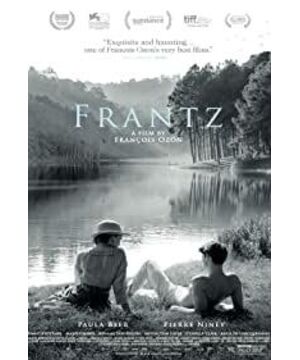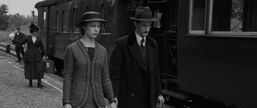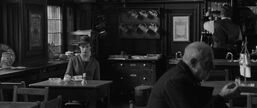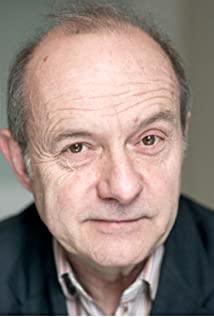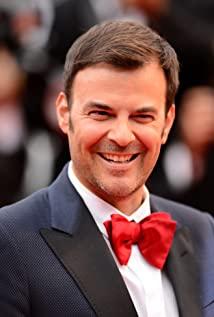It's not a suspense movie, so I can't talk about spoilers. The background is Germany just after the end of the First World War. Franz was a German soldier who died in the war. When his fiancée, Anna, was laying flowers at his cemetery, she saw a Frenchman named Rival there. Rival falsely claimed to be friends with Franz in France. It was later learned that the Frenchman Rival and Franz were opponents on the battlefield. They met in the tragic Battle of the Marne, and Rival killed Franz in a panic. He came to Germany with remorse to make atonement. During Anna's relationship with Rival, they fell in love with each other. But he couldn't accept the fact that Rival killed Franz. When Anna went to France to find Rival, she learned that he already had a fiancée, so she had to go home depressed.
The plot is simple. Emotional film in an anti-war context. There are no more unexpected plots, but after watching it, it can move people and make people think again and again. It all depends on the director's deep excavation of the main line, the detailed and thoughtful description, and the superb acting skills of the actors.
This year marks the centenary of the end of the First World War. Dignitaries from all over the world gathered in Paris to participate in the commemoration. Speech after speech was delivered, which he called "Our soldiers fought world wars for peace." The war between the great powers killed 10 million people and injured 20 million. At that time, the propaganda of the governments of various countries to the people said that it was "fighting for the defense of the motherland", and countless young people were thrown into the battlefield, which brought serious disasters to the people. The Paris Peace Conference that followed or the Versailles Peace Treaty was just a re-partition of the world by the European powers. It has neither created well-being for the people nor really brought lasting peace. French Marshal Foch at the time pointed out that "this is not peace, this is a truce of twenty years!"
The film describes the situation at that time. At the end of the war, there are rubble and orphans wandering around. What people face is not the pride of defending the country, nor the return of justice. Whether it is the victorious country of France or the defeated country of Germany, what people feel the most is the endless sadness and depression. At the same time, after the tragic killing, they are also thinking, who should be responsible for this unjust war? The Serbian young man who assassinated Archduke Ferdinand? Is it insatiable governments? Are those generals who are keen to kill people? In the film, Franz's father Hans says to his friends: "Who sent them to the front? Who gave them guns and bayonets? We, their fathers. Whether in our camp or in the enemy's camp, we are to blame. When we killed their son, we are here to raise our glasses to celebrate our victory. And when our son was killed, They are also toasting to celebrate their victory. And we fathers are toasting to celebrate our own flesh and blood." Hans's remarks revealed that it was the people of all the warring countries who were really responsible for the war. . The people supported the government, supported the government's policies, and happily sent their loved ones to the front line. Full of glory to win victory, fertile land, endless resources. But the result?
Both Rival and Franz were small soldiers in their respective countries' armies. From the day they enlisted, they were a cog and a screw in the war machine. It is their duty to kill. Although this murder is legally and morally different from those of the murderers, the actions and the end result are the same. The education they receive is the justice of killing, and the training they receive is how to kill quickly and skillfully. Killing while protecting yourself from being killed. Therefore, when these two soldiers who had no hatred in the past and the present met by chance, the subconscious action was to destroy each other. At this time, the requirement for a standard soldier is not to think about it, not to have the slightest compassion, and to deal with such an encounter in cold blood. And in reality, neither of them could do it, they both hesitated, they both flinched. The difference is that Rival's hesitation was only momentary. Immediately after that, he instinctively pulled the trigger. When he recalled the scene at that time, he said: "We stared at each other blankly, with panic and despair in our eyes, and I will never be able to understand whether the expression on his face at that time was sadness in the face of death, or whether it was out of Have mercy on me. Anyway, I shot." And so, an innocent life fell. A family is broken. Rival has also paid a heavy price of lifelong regret and unable to extricate himself. The casualties between the two armies are inevitable, and the word "soldier" itself means death. In Just War, the martyrs are the heroes who die. In a senseless war, it is the soul that dies. Of course, the meaning of death is different from that of Mount Tai. But in any case, these soldiers are essentially living people, and they could have lived in a peaceful environment for the rest of their lives. No one has the right to send them into unprovoked killing.
The movie has such a scene. Rival and Franz were each well educated, and they both loved the poets and music of the other country. Rival used the violin that Franz left behind to play Russian composer Korsakov's famous "The Arabian Nights" for his elderly parents. The Anna family was immersed in this beautiful and moving melody. They all once had their own visions of their own ideals of life. Yes, if people live in such an atmosphere of fusion and harmony, how wonderful the world should be! But looking back, isn't most of the thousands of years of human civilization spent in the bloody sea of slaughter and plunder? This is how humans, animals, ruthlessly destroy their own kind for their own selfish interests and inexplicable hatred, destroying the lives of millions of people.
World War I left people not only the pain of bereavement, but also the rift and hatred between nations. In the film, Rival is in a tavern when he hears a group of extremists singing "Guardians of the Rhine". He kindly went to pick up a drunk who saw a Frenchman in front of him and scolded, "Don't touch me, disgusting French!" When Rival first visited Hans, Hans held up his son The posthumous photo of her angrily said to him: "Every Frenchman is the murderer of my son!" Anna also encountered such a scene in France, where people sang "Marseille" in the tavern to celebrate the victory. The ticket inspector on the train came to check the ticket, saw her passport, and asked him coldly: "Are you German?" "Yes." "Why did you go to France?" "I came to visit a friend." "Captive?" "No, he's French." In this way, the embarrassing interrogation ended under the hostile gazes of the surrounding passengers. Rival and Anna adore each other, but they both know that the obstacle in front of them is not just because Rival has a fiancée, nor because the marriage was ordered by Rival's parents, or even because Rival Vulnerability of character. But because they used to be different ethnic groups who met with swords and guns on the battlefield, the scars left by the war for the two ethnic groups are too deep. This scar makes it impossible for them to accept each other. Only at parting did they kiss each other. And this kind of revelation of each other's true feelings is only a few seconds before the train starts.
The most touching character in the film is Anna. There is pride in her restrained coldness. She endured the great pain of losing her fiancé and lived tenaciously. She sees this broken world very clearly and doesn't hold much hope. She struggled and challenged with her own strength, only to fail in the end. At the end of the film, she looks at Manet's famous painting "The Suicide" and says, "It gave me the courage to live."
She also reflects her own character in her conversations with others. The Cruz who pursued her always haunted her. To him: "We've all lost loved ones, but life has to go on and start over."
Anna: "Yes, Franz said the same in his last letter."
Cruz: "I understand how you feel."
Anna: "You won't understand."
Cruz: "With me, you will gradually forget Franz."
Anna: "But I don't want to forget her."
One more paragraph. After Rival's mother knew Anna's intention, she said to Anna rudely: "Don't torture him any more." Anna immediately said, "It's not me who tortured him, it's Franz."
Anna is like this. Once someone offends her, she immediately responds mercilessly, decently and without losing her identity. Impressive.
The filming is also very special. Both black and white and color scenes are balanced. But it's still not possible to distinguish when a director works in black and white and when in color.
This is a movie that I will remember for a long time after watching it. Recommend to friends.
My rating: 8.0.
View more about Frantz reviews


